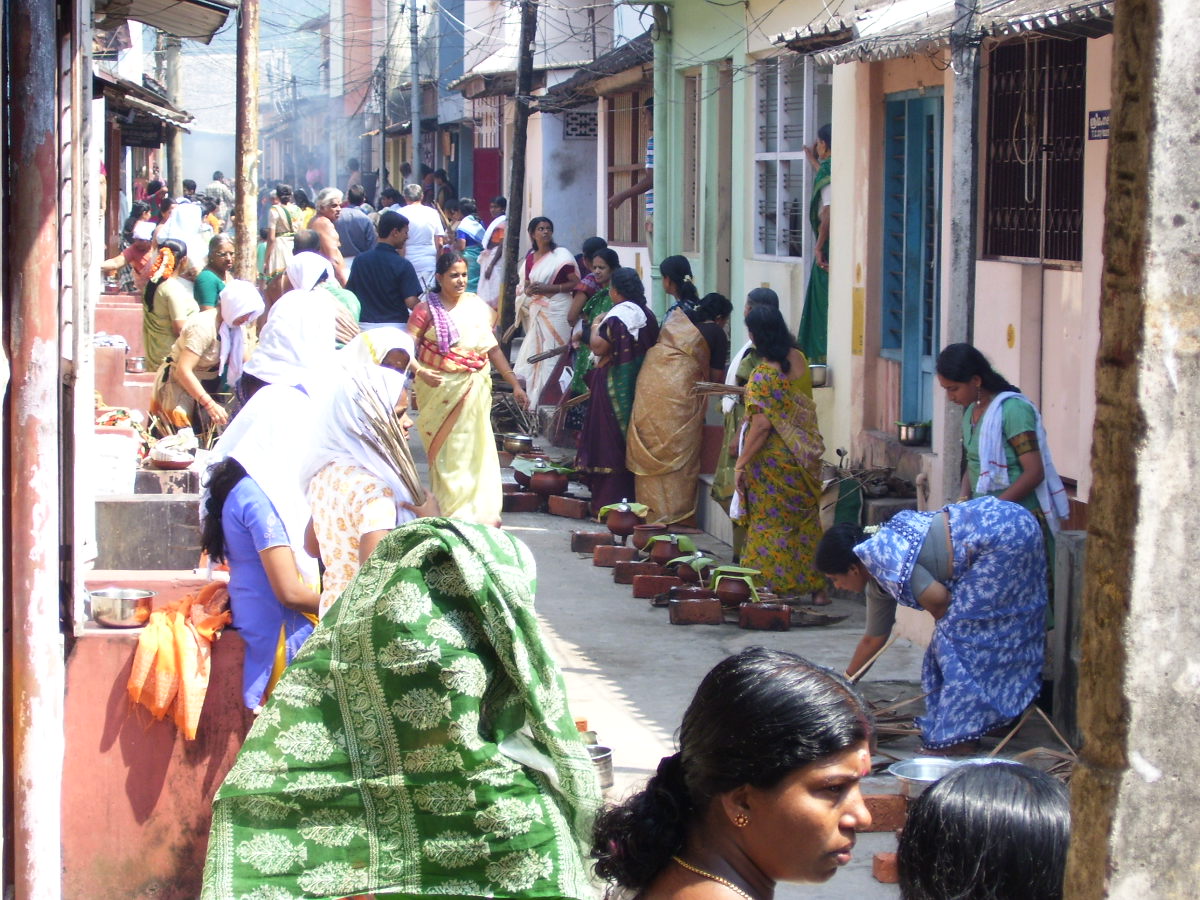The Attukal Bhagavathy Temple stands as a profound testament to the spiritual and cultural richness of Kerala, embodying the powerful narrative of divine feminine energy. Located in the heart of Thiruvananthapuram, this sacred temple transcends mere architectural magnificence, representing a complex tapestry of mythological legends, spiritual devotion, and cultural heritage.
Central to the temple's origin is the legendary story of Kannagi, the heroine from the Tamil epic "Cilappatikaram", whose journey symbolizes resilience and spiritual transformation. According to local folklore, Kannagi, after the destruction of Madurai, traveled to Kodungallur and paused at Attukal, appearing as a young girl to an elderly man. In a mystical encounter, she revealed three golden lines marking the precise location where the temple would eventually be constructed, embedding the site with deep mythological significance.
Dedicated to Goddess Bhadrakali, a fierce manifestation of divine feminine power, the temple's sanctum sanctorum houses a majestic granite idol bearing four arms equipped with symbolic weapons of destruction and protection. The architectural design beautifully synthesizes Kerala and Tamil architectural styles, featuring intricate carvings and sculptures that narrate complex mythological stories and divine representations.
The temple's most remarkable feature is undoubtedly the annual Attukal Pongala festival, which has earned global recognition by entering the Guinness Book of World Records as the largest gathering of women for a religious activity. During this vibrant celebration, millions of women converge to worship the goddess, preparing traditional Pongala as a spiritual offering. This event transcends religious ritual, emerging as a powerful socio-cultural gathering that celebrates feminine energy, devotion, and community solidarity.
Beyond its religious significance, the Attukal Bhagavathy Temple serves as a crucial center for spiritual and cultural education. Regular philosophical discourses, yoga classes, and traditional arts workshops are conducted within its premises, transforming the temple into a dynamic hub for spiritual growth and cultural enrichment. The institution actively preserves and promotes Kerala's rich cultural heritage through these educational initiatives.
The temple's architectural splendor is complemented by its sacred surroundings, including a revered pond believed to possess healing properties and meticulously carved pillars depicting various mythological scenes. Each architectural element tells a story, connecting visitors with ancient spiritual narratives and cultural traditions that have been carefully preserved through generations.
The socio-political importance of the Attukal Bhagavathy Temple cannot be overstated. It represents a space where religious practice, cultural expression, and feminine empowerment intersect. The annual Pongala festival, in particular, symbolizes women's collective spiritual strength and their significant role in maintaining cultural continuity.
As a living cultural institution, the temple continues to evolve while maintaining its core spiritual essence. It attracts devotees and cultural enthusiasts from across the globe, offering a profound glimpse into the complex spiritual landscape of South India. The Attukal Bhagavathy Temple remains a powerful symbol of divine feminine energy, cultural resilience, and spiritual transformation.






